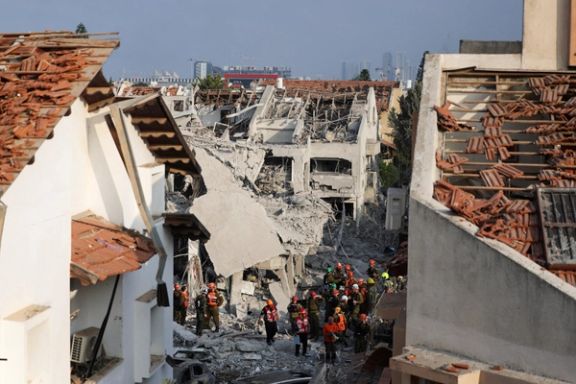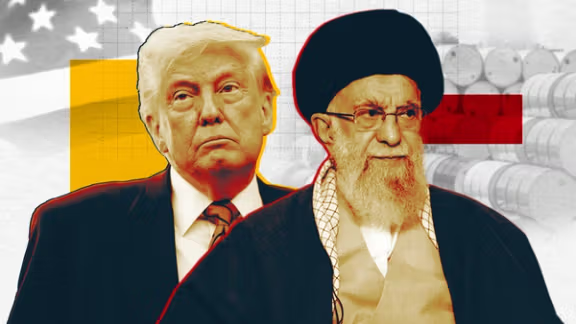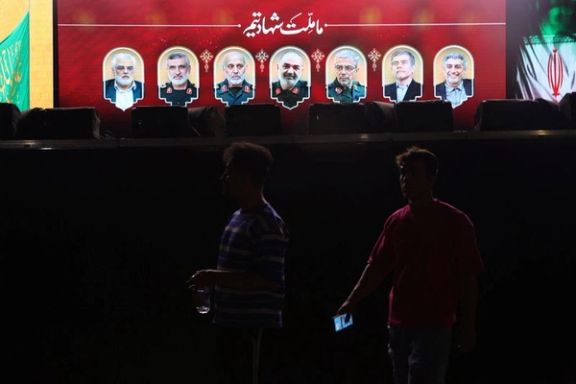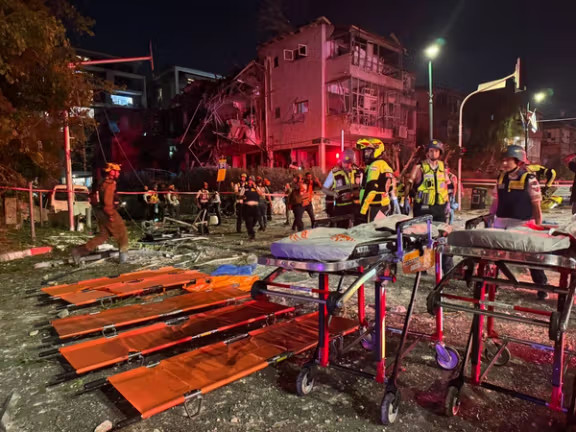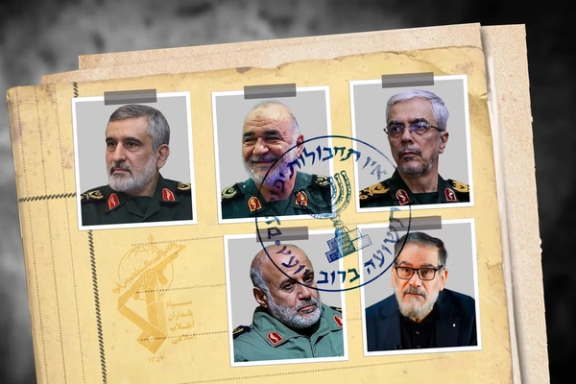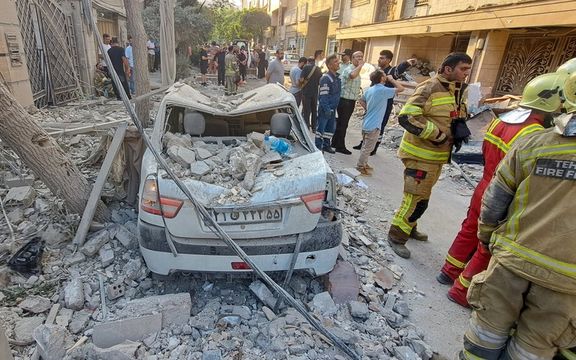“This operation took years to prepare,” Chikli told Eye for Iran. “It's the very hard walk of the IDF intelligence, the Mossad... thousands of people are involved in this.”
“This is just the beginning,” he said, without disclosing operational details or how the mission might continue.
Iran launched over 200 missiles at Israel injuring at least 14 people after Israeli attacks killed its top military leadership and pounded armed forces and nuclear sites leaving scores of Iranians dead.
While Israel’s initial strikes hit key nuclear sites like Natanz and Fordow, Iran’s nuclear infrastructure spans dozens of locations. According to Israeli assessments, further strikes will likely be needed to eliminate what is seen as an existential threat.
Chikli said the objective was not regime change, but to stop Iran from acquiring nuclear capabilities. While many Iranians have called on Israel to help bring down the Islamic Republic, he said meaningful change must come from within.
“This is the time to seize the moment and to try and take back your country from the Revolutionary Guards," said Chikli, "Will Iranians use this moment to change the course of history, or not?”
Diplomacy may follow destruction
Major Andrew Fox, a former British Army officer, also said the Israeli strikes were deliberately calibrated to avoid full-scale regime decapitation—signaling intent, not total war.
“If they'd been serious about regime change, then Khamenei and the president would have been fully in scope for targeting.”
Fox emphasized that while regime change might remain a long-term objective, Israel’s more immediate priority is clear: "The short-term aim has to be focusing on making sure Iran doesn't gain a nuclear weapon capability."
He suggested that President Donald Trump may be using the Israeli operation as strategic leverage to push Tehran back to the negotiating table—after exhausting political and economic pressure.
“Trump is talking about giving Iran another opportunity to make a deal... That's the horse trade that Israel made with Washington.”
Fox’s analysis points to a pattern: when sanctions and diplomacy fail to alter Tehran’s behavior, military action becomes a final tool—not necessarily to start a war, but to reset the terms for diplomacy.
Iran’s weakest moment
Dr. Eric Mandel, a Middle East analyst and advisor to US and Israeli defense officials, told Eye for Iran that this moment marks the Islamic Republic’s deepest vulnerability since its founding in 1979—one of the most consequential events in modern Iranian and Middle Eastern history.
“Iran is at its weakest in 46 years,” said Mandel, who directs the Middle East Political and Information Network (MEPIN).
He says Trump now faces a defining choice—retreat into isolationism or use Israeli military action as leverage for long-term strategic change.
“The big question is, what will President Trump do? Not what the Israelis will do. What will the president do with what Israel has handed to them?”
Mandel suggests that one option remains on the table: a US strike on Iran’s deeply fortified enrichment site.
“America could retaliate and would the president make a phone call to Diego Garcia where our B-2 bombers with the massive ordinances are and attack the one place that hasn't been attacked as we know which is the deeply buried enrichment facility in Fordow”
The Lion Rises
Israeli Minister Chikli said the operation’s name, Rising Lion, came from both Iran’s original flag and a verse from the Book of Numbers: ‘A nation that rises like a lion.’
"We believe this is a moment not just for security—but for shared history and future peace.”
You can watch the full episode of Eye for Iran on YouTube or listen on any major podcast platform like Spotify, Apple, Amazon Music and Castbox.
